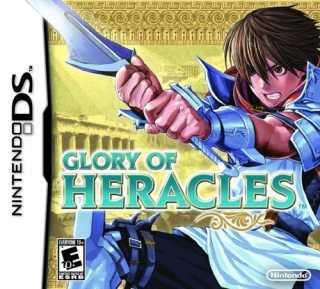
Since this series has been happily trundling along in Japan for over 20 years now, I wondered what sort of unique challenges or processes there might be in bringing a long-running franchise like Heracles to the West and to a new audience. And who better to ask than the guys who did it? I fired a few questions over to Mark MacDonald, executive director at 8-4 Ltd., and Rich Amtower, producer and localization manager for Nintendo itself, to get some insight into what localizing this sort of game might be like. If you've ever thought about getting into this line of work before, their answers might enlighten you.
This series has never appeared in North America before. As the purveyors of its storyline to a new audience, do you feel any pressure with regard to how you represent it?
MacDonald: Hmm, well, yes and no. As you know, this series does have a legacy in Japan, dating from a number of games in the 8- and 16-bit era, but since none of them were ever translated, there really wasn’t any extra pressure to measure up to legacy games, or high expectations from Western fans of the series.
That said, there was most definitely pressure working with Nintendo. But I’ll get into that later to avoid repeating myself, and to trick your readers into thinking something juicy will be coming later in this interview. For now let’s just say, in all caps: BIG TIME PRESSURE.
Back in the day, RPG fans seemed to value slavish, literal translations of game stories from the original Japanese. (I know I did, anyway.) Do you think that attitude has changed? Which side do you guys lean toward? Do you feel more freedom to inject your own personality or massage elements like humor for Western audiences, these days?
MacDonald: I think you and I shared, and probably still share, the same attitude about this, but let me start off by correcting something in your question—I don’t think it was ever about wanting “slavish, literal” translations.
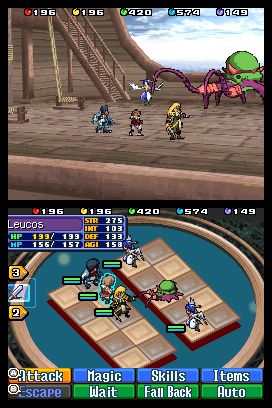
So in that respect, no, I would say the attitude hasn’t changed. In fact, I think the average gamer’s expectations are higher than ever with regards to localization, thanks to some great games raising the bar and the internet calling attention to extremes on both ends of the spectrum. “All your base” is a joke now, but back in the day it was just what we lived with.
Obviously I think a lot about this kind of thing, so I could write pages about our philosophy on it, but I’ll spare you and your readers and just try to sum it up: basically, we don’t want the player to know, or care, what territory a game was originally written for; it should just feel as if it was written for them. They should experience every part of a game as its creators intended it, if not necessarily as they wrote it.
Of course that opens up a million questions about intention and how you go about judging and reflecting that, but that’s probably better left for another day.
Amtower: Mark's done all my work for me. Just cut and paste his answer and attribute it to me, please.
No, no. I kid. Seriously, this is an important question, and as Mark says, a deeply philosophical one as well. Fortunately, we're on the same page as 8-4 here. All I can really add is that a good localization is an invisible one. You may notice that the writing is high quality, but the writing shouldn't take you out of the game world. I don't think people ever really wanted slavish, literal translations of game stories. I think they wanted to feel immersed in the game. It's up to the localization to support the game's characters, artwork, and story and reward players for investing their time in the game.
I don't think I answered your question at all. Sorry.
Are your contributions to the project limited to the text? Do you have any leeway to alter game systems or mechanics, or improve the game in any other fashion?
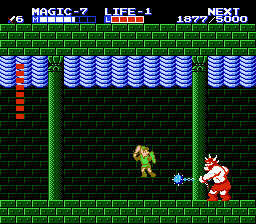
That said, my idea to add a mini-game fashioned as a direct sequel to Zelda II: The Adventure Link, roughly the same length and scope of the original, made by the Zelda dev team, staring all Zelda characters, and sold separately from Heracles, was completely ignored.
What's your pitch for Glory of Heracles? What would you say to a new player to convince them they should play it?
Amtower: Hm. If I'm pitching to someone who isn't familiar with RPGs, then I'd want to sell you on the story and setting. I'm a huge mythology nerd, so I loved not only seeing familiar names and myths appear in the game but also seeing how the game played with those myths to create its own world. That's the heart of the RPG to me—entering another world, discovering its secrets, learning about your characters, and unraveling a gripping story along the way.
Everyone says this about every RPG, I know, but Glory of Heracles is a great place to learn the ways of the RPG. It has the standard "showing you the ropes" tutorials, but Glory of Heracles knows when to stop holding your hand—once you've got those basics down, you'll continue to receive flashing updates anytime you encounter something weird and new, but if you know your way around an RPG already, you can skip these entirely, and if you decide you want the information, it's just a tap away.
Did you do any digging into classical Greek mythology to prep for this game? Or do the supplied materials from the developers typically give you everything you need on a project like this?
McDonald: Well, “Heracles” definitely takes liberties with all the myths it’s based on, but we did use a lot of reference material throughout our work on the game. Mostly a lot of digging around on the Internet, which might sound lazy, but seriously—what can’t you find on the Internet these days? That said, Crispin Boyer, our lead editor and basically the writer on most of the game, did check out a few Greek language books and talk to college professors to help settle some of the finer points, mostly to do with names and spellings and other details.
What are the tools of your trade on a day-to-day basis? What sort of hardware and software do you need to get a game like this ready for the Western market?
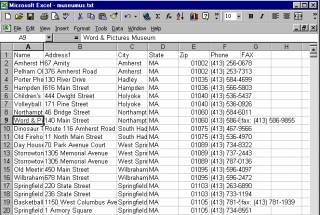
So you get a bunch of files divided up by different areas or aspects of the game; one sheet might be all the messages you see in battle (or “battle messages,” as we call them in the business), another a list of all the items in the game, another all the NPC dialogue for a given town, etc. One column has the Japanese listed, and you put the English in the column next to it. It’s different every time and usually a bit more complicated than that, but not a whole lot. So yeah, the next time you’re daydreaming that translating games is all fast cars and supermodels and peanut M&Ms, just remember that, most of the time, it looks more like you’re filling out third-quarter TPS reports.
We also had a special version the Nintendo DS hardware that allowed us to play different builds of the game as the team worked implementing the English text and fixing all the usual bugs, which really came in handy near the end of the project.
Amtower: Mark talks about some of the specific tools for this project, but we try to have a few specific things whenever we work. The most important thing is knowing how much space we have on-screen, so that we know how much to write. The next is knowing where things appear on-screen, so that you can make sure you've got the context right. The tone of a monster's encyclopedia entry is entirely different from the tone of a character talking about a monster, but the two messages might look identical in a file. You need to know what a message is meant to do before you can decide what it needs to look like in English. Other tools include the standard assortment of dictionaries, style guides, and glossaries, to keep all the spellings straight in your head.
How has it been working with Nintendo on this project, given the company's traditionally high standards for localization quality?
MacDonald: Lemme throw this in with your last question since they are related, and I don’t want Nintendo to get TOO big of a head over this.
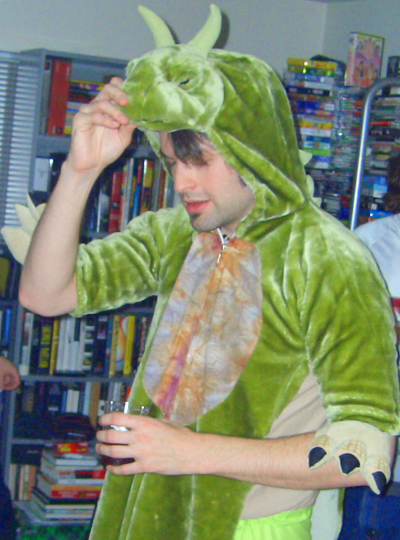
MacDonald: Competition? I’d say we think of it more like charity work than competition. We try to help them out. You know, give them a little peek behind the curtain, show them how the big boys operate… hopefully some of it rubs off on them.
No, all trying to be funny aside, Nintendo are among the best, and often the best, at what we do. Yes, they are a client, and yes, they are reading this, but anyone who’s played any Mario & Luigi game knows I’m not kissing ass. Or played Animal Crossing. Or Hotel Dusk. Or Professor Layton. Or Fire Emblem: Shadow Dragon. (Oh wait, we did that one, too? My mistake!)
So yeah, working with the people who regularly turn out that level of pitch-perfect localization work is intimidating, but only in the best sense of the word. It’s like if one of your favorite, best-selling authors were to work with you on polishing up your novel, or like when I read one of your game reviews and post on your Facebook wall about how wrong you are: It’s an honor.
Thanks to Mark and Rich for their time. If you want to put at least one face to a name, check out what happened last time we dropped in on 8-4 in the middle of Tokyo.
19 Comments